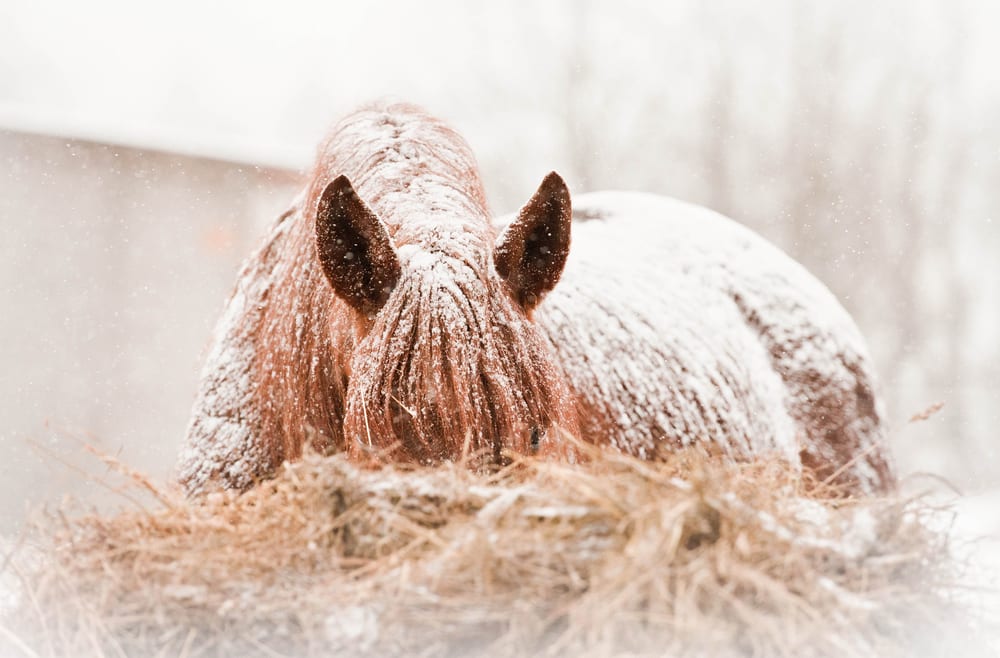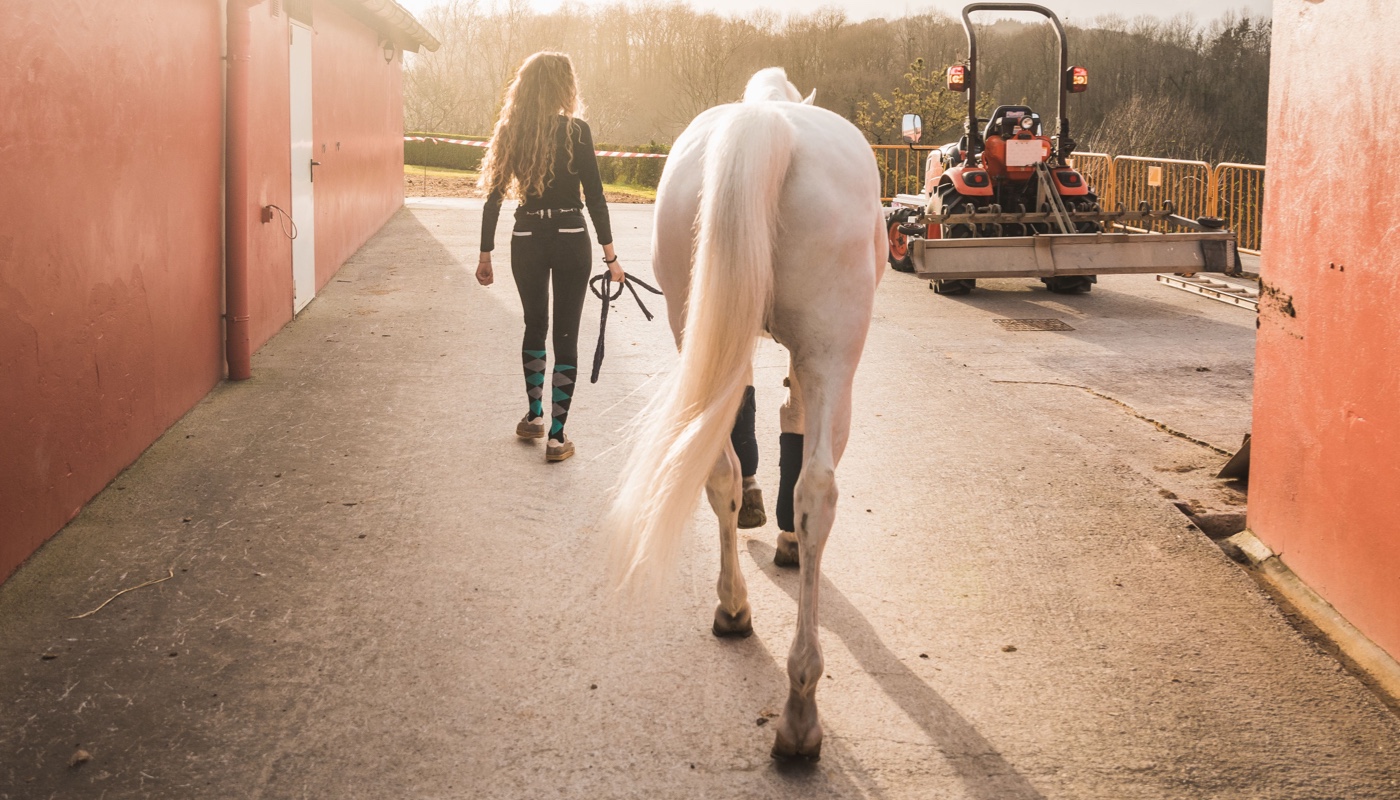It seems so cozy – a slighly fuzzy horse tucked into a nice clean stall with a warm blanket, a pile of hay, and a heated water bucket as winter cold and snow descend outside the barn.
But as comforting as it may be to us human caregivers, it’s a myth that horses need to be blanketed in winter. Given a decent hair coat, shelter from the elements, and plenty of hay to produce heat naturally, horses are built to withstand the harsh conditions of winter all on their own.
Here’s a look at how appropriate feeding practices not only keep horses healthy but warm, when blanketing can be detrimental, and when blanketing is recommended.
Feed More Hay To Keep Horses Warm in Winter
Increasing a horse’s forage – quality hay and/or beet pulp – in winter is the most effective way to help a horse stay warm and avoid dropping weight when it gets cold.
Forages are fiber-rich feeds which are digested through fermentation in the horse’s hindgut. Stemmy, fibrous food stays in the hindgut for two to three days as it is broken down by the beneficial microbes that live there. This fermentation process produces volatile fatty acids, or “VFAs,” that are then absorbed through the colon.
The VFAs produced by hindgut fermentation can provide up to 70% of a horse’s energy. When it gets cold, more of that energy is diverted towards maintaining the horse’s body temperature. Normally, horses decrease their activity level and move less when it get cold, so they naturally compensate for the extra energy needed to maintain their body temperature.
Horses in work, then, require much more energy to be active and still stay warm. In order to meet those added requirements in the most effective and healthy way, it’s critical to increase their forage intake. Free access to hay is the ideal way to keep even the active performance horse warm in winter, as well as to maintain weight, encourage digestive health, and keep a bored, stall-bound horse happier. (Note that increasing grain is not a healthy way to maintain weight in winter or produce more body heat.)
The Drawbacks of Blanketing Horses
Since horses are naturally equipped to grow a thick hair coat and produce plenty of body heat in winter with appropriate feeding, blankets are not always essential. That thick winter hair coat stands on end and has inherent insulating properties – which may be compromised when flattened by a blanket, in effect making it harder to stay warm.
Additionally, over blanketing poses health risks to horses. Getting overheated under a too-heavy layer of blanketing can lead to dehydration, a host of health issues, and may actually make the horse colder. Blankets need to be breathable so a horse can dry if he starts to sweat, or waterproof if he’s exposed to elements. A wet blanket on a cold horse does no good.
Finally, spending months covered in winter blankets can hide health issues such as weight loss, skin conditions, or injuries that would otherwise be seen right away.
When to Consider Blanketing Your Horse
As we’ve discussed, horses that grow a thick winter hair coat, have access to shelter from winter wind and precipitation, and have plenty of hay are plenty capable of staying comfortable even in frigid temperatures, indoors or out.
However, there are times that blankets are still recommended:
- For foals or senior horses that have a more difficult time maintaining body temperatures.
- When horses are fully or partially body clipped.
- When horses are outdoors without access to shelter.
- Horses that have recently moved from a warmer climate.
- Horses that are in regular work may need to maintain a lighter coat to reduce sweat and to help sweat dry quickly.
For performance horses in training, or perhaps competing, throughout the winter, maintaining a shorter or clipped hair coat and then blanketing is a must. Just be sure to use the lightest blanket recommended for the temperature and provide 24/7 access to hay for additional warmth and to keep those guts healthy.
Ultimately, it’s a myth that horses need to blanketed to stay warm in cold winter months. They are perfectly equipped to stay warm on their own with appropriate care. However, blanketing is still a beneficial practice when we remove them from their natural lifestyle and put them in work.




